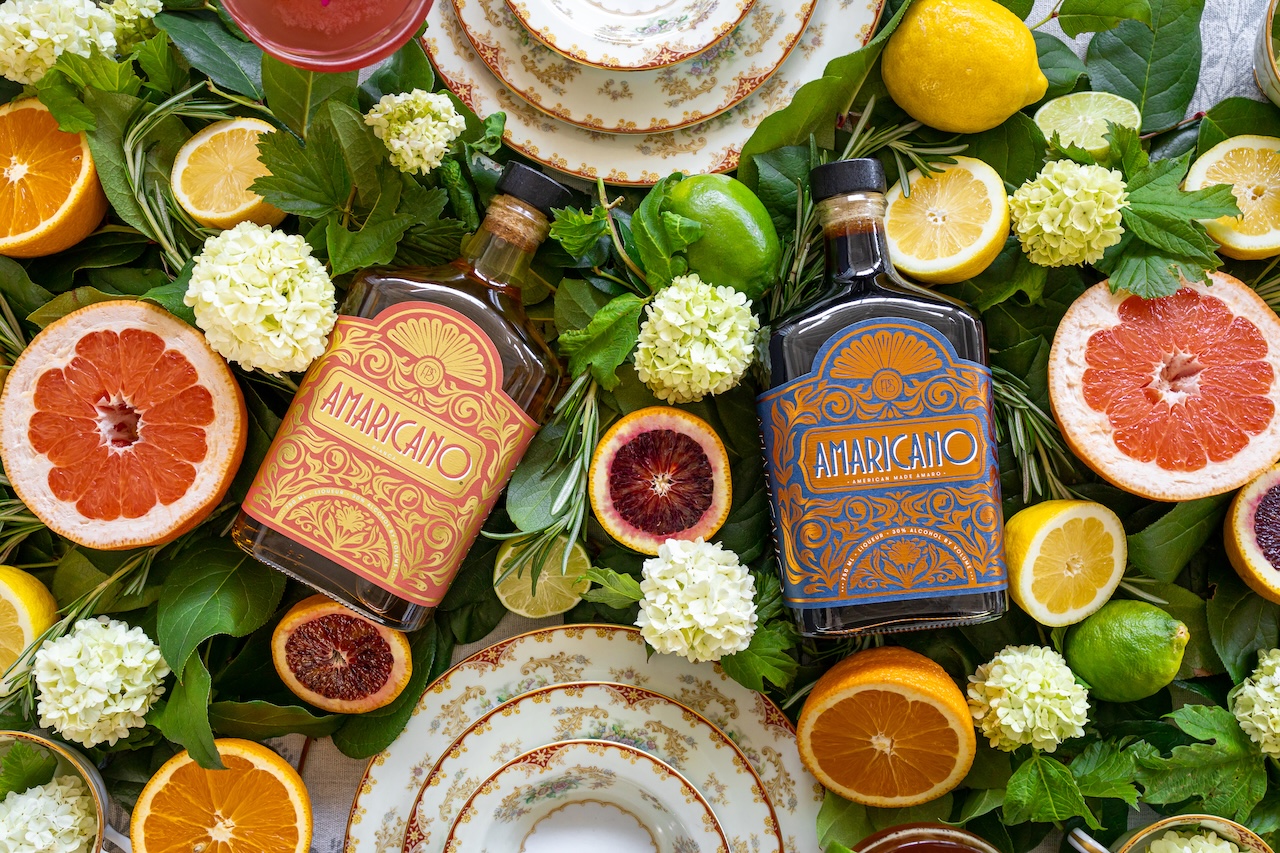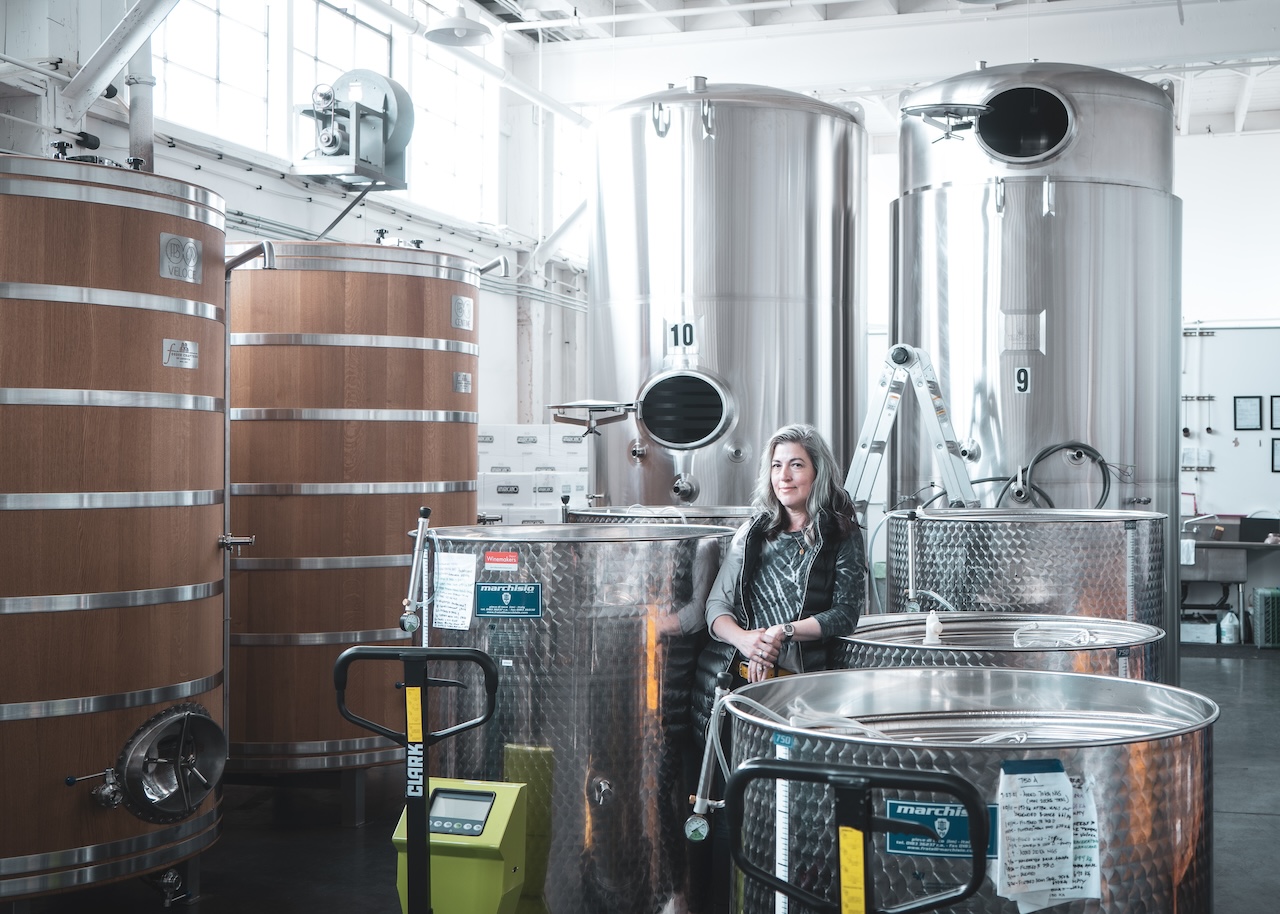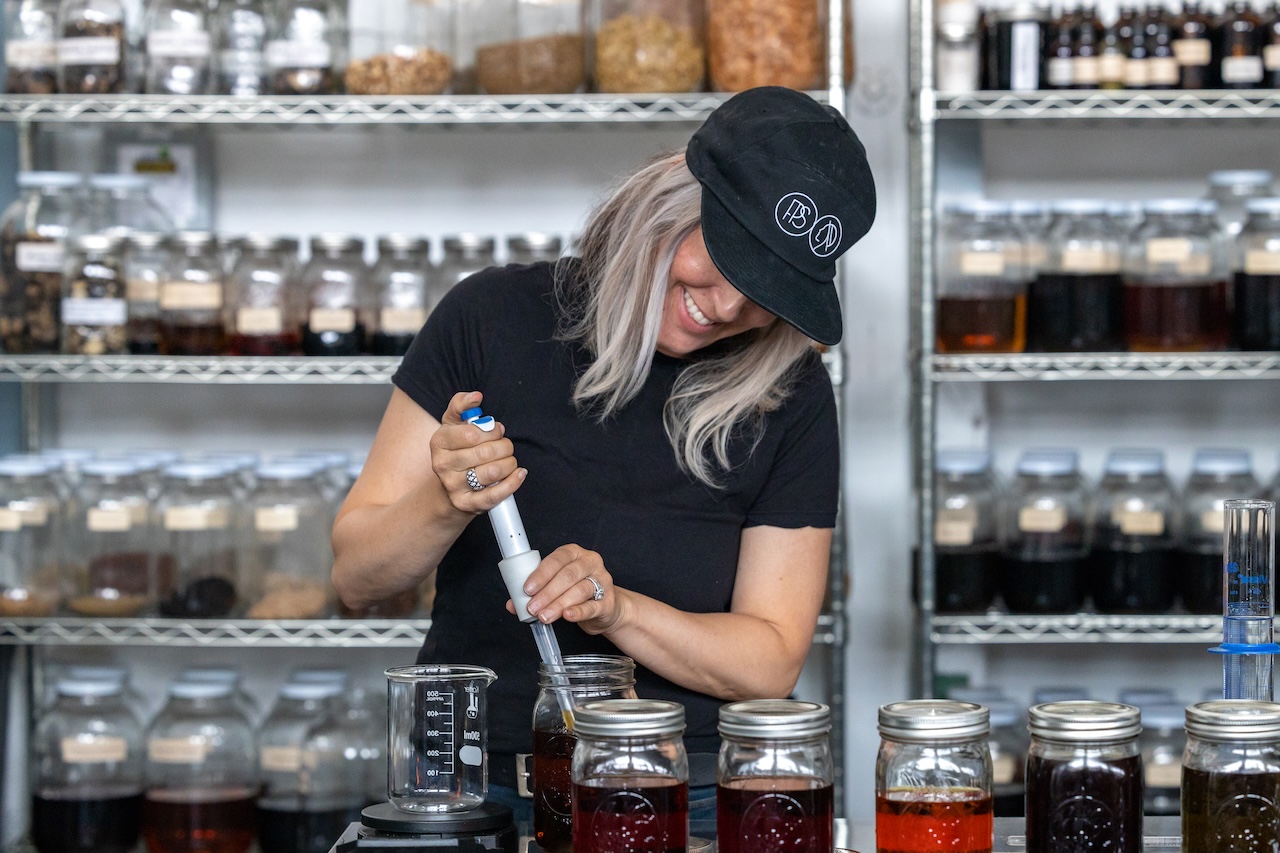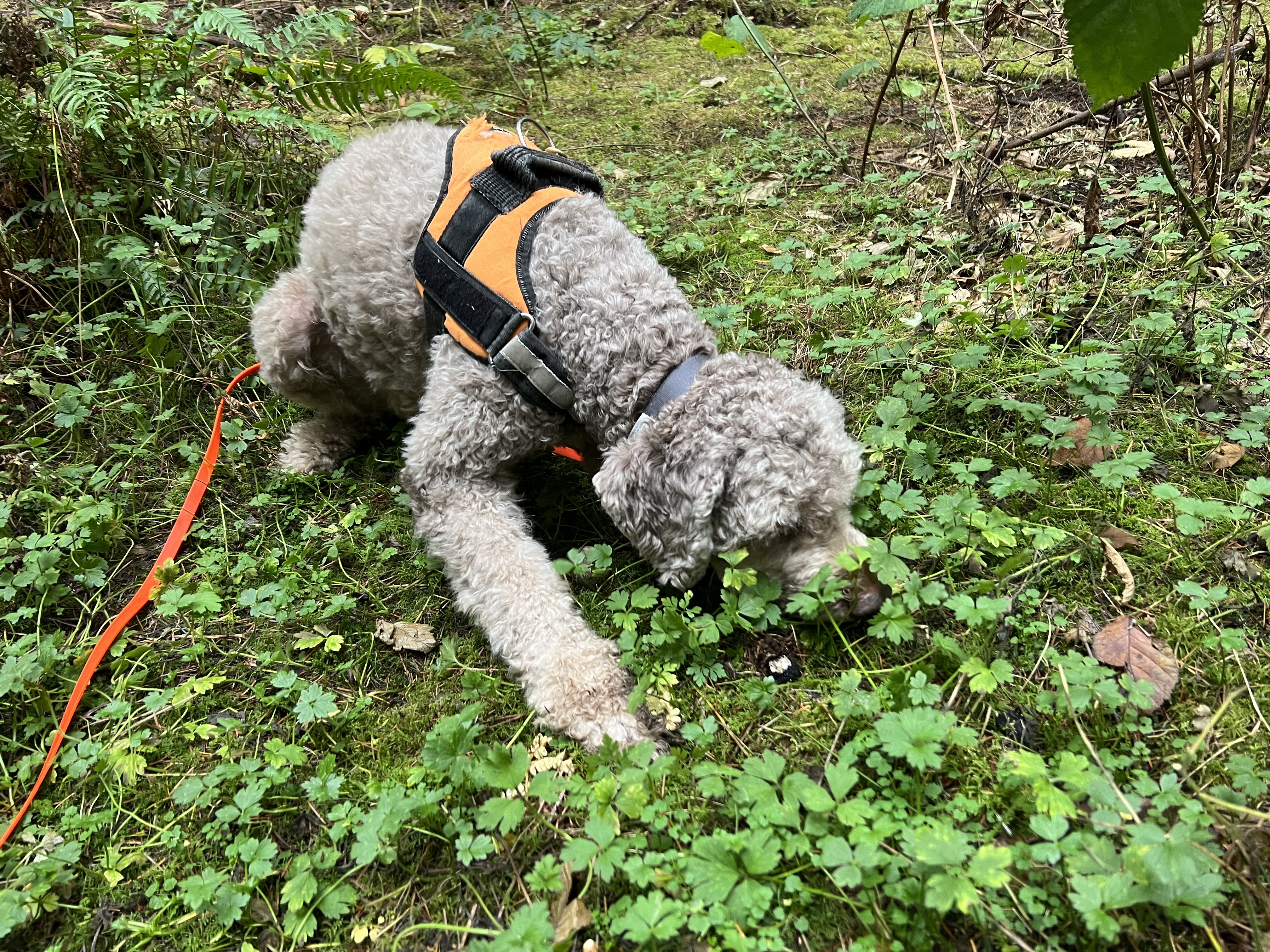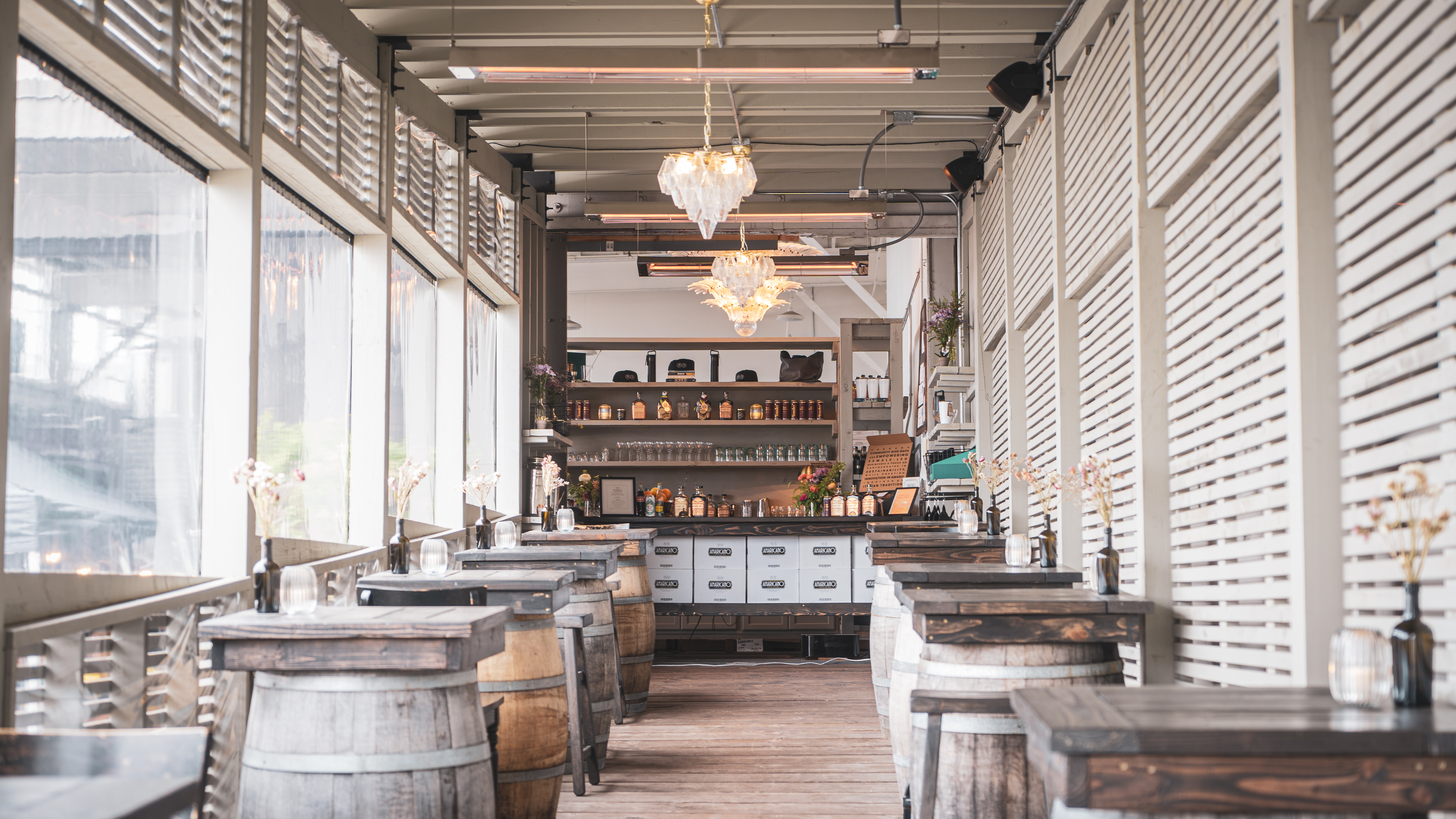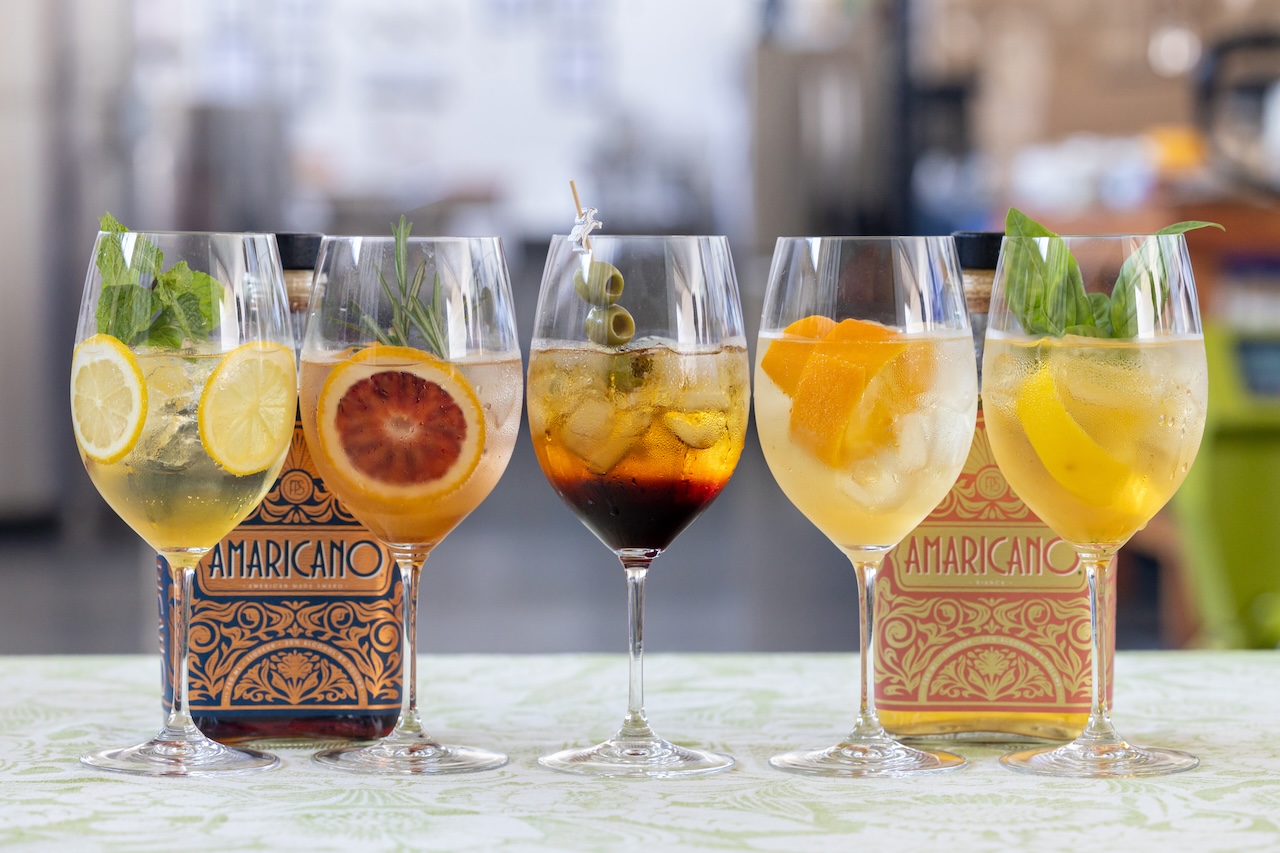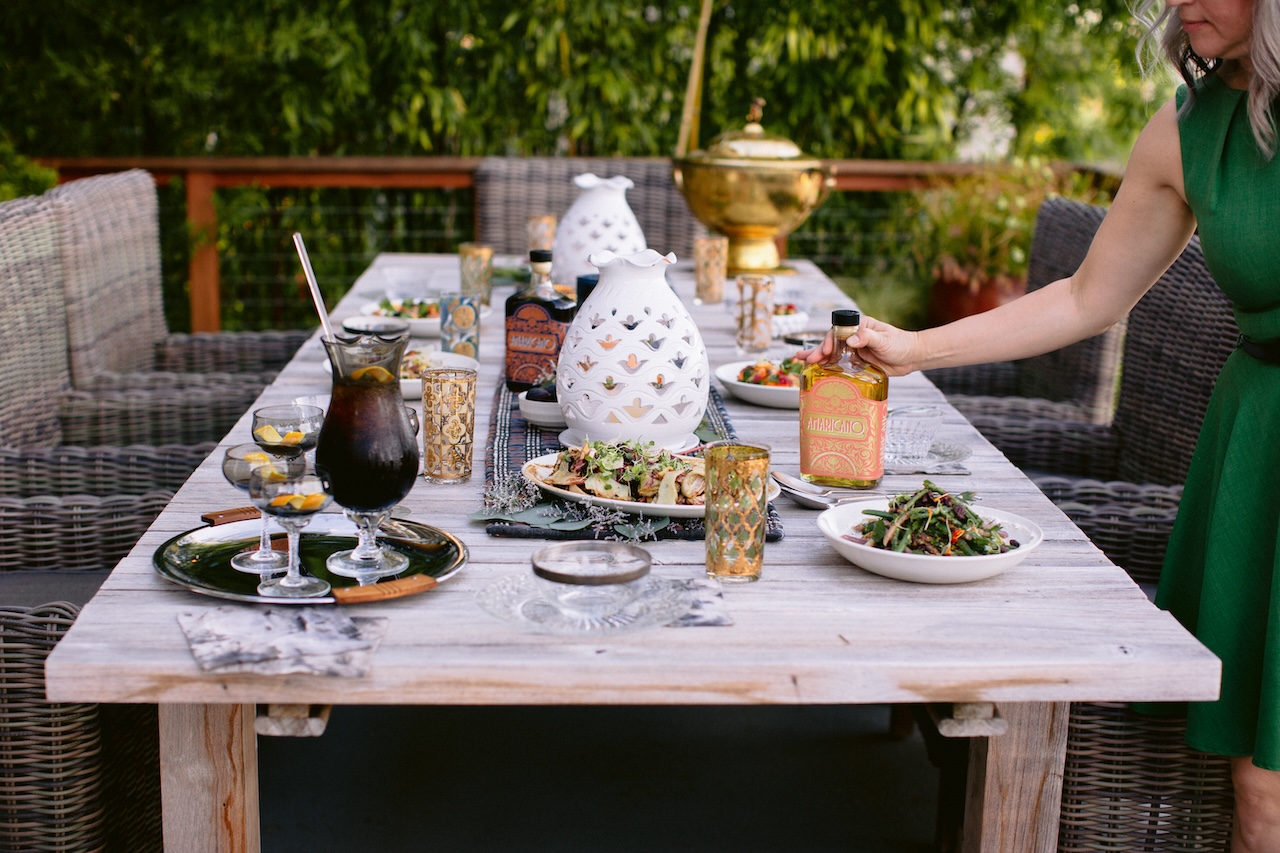Fast Penny Spirits Founder and CEO Jamie Hunt is on a mission. She wants to change the way we drink, and part of that means tapping into tradition. In Jamie's case, that translates to her Sicilian roots. Her grandparents came to the U.S. from Caltanissetta and Palermo. Her grandfather made wine, and her mother introduced her to the art of spirit-making.
American-made amari just couldn't compare to the complex flavors Jamie experienced in Italy, so the "mostly Seattle" native concocted her own, launching flagship varietals: Amaricano and Amaricano Bianca.
I recently had the chance to chat with Jamie about amari origins, Fast Penny Spirits' start, the company's generous give-back program, some of the 46 botanicals in the Amaricano recipe, and what she'd like to see and hear from customers.
What exactly is amaro?
It just means bitter in Italian. It's a bittersweet Italian liqueur. Other countries make it, but Italy is most well-known for it. It's made by macerating botanicals like flowers, roots, herbs, spices, and fruits. The botanicals are then put into either a high-proof spirit, which is the most common, or wine.
What is the history of amaro?
Preserving the health benefits of plants in alcohol has been done for centuries because there wasn't refrigeration and no way to freeze or sustain whatever those properties were. It's just interesting to see how it evolved from this liquid to help treat ailments into adding a little bit more sugar to make it more pleasant for people and eventually becoming more of an elixir or something you would drink whether you were sick or not.
There's also an interesting story about amaro with the Prohibition in the U.S. Because it was considered medicine, it could be sold in pharmacies in the U.S. So fernet and other Italian amari came in as medicine, and people could buy it at their local drugstore. That's the time when the Hanky Panky cocktail was created with fernet.
So, there are interesting little moments throughout history when this comes alive. When we were in the Averna factory in Sicily, we went to the abbey where the monks created the recipe. It was fascinating to explore the gardens and see many of the ingredients used in the Averna recipe.
How did you get started producing Amaricano?
I have been an amaro lover for a very long time since traveling to Italy in my twenties. I've been drinking it ever since. My family is Italian, and my grandfather used to make wine. My mom used to make Galliano and other Italian liqueurs, like limoncello. So I kind of grew up just used to being around people making beautiful things, whether it was food or liquid.
I worked as a consultant in the digital tech industry for over twenty years. I was looking for a new chapter and trying to figure out something I was passionate about that would be a real product, like a physical product. Because I've been doing so much that didn't have a physical element to it.
I also wanted to create something that allowed me to give back. From the start, I knew I wanted to become a B Corp because I believe in business as a force for good—for people, the planet, and our environment.
Being raised in an Italian family teaches you the importance of welcoming, engaging, and building a sense of community. It's about being a place where people love to gather, enjoy good food and drink, and experience genuine hospitality. That's the spirit I wanted to create.
One night, I was having an after-dinner amaro with my husband at a local bar here in Seattle. For whatever reason, that night, I got curious about whether there was an American-made amaro. I had never really thought about it before.
They had a few bottles behind the bar and offered us samples, as about half a dozen amaro makers are in the Seattle area. We tried them, and while they were good, they didn't have the same complexity as the Italian styles I was used to. That sparked my interest in researching the market and experimenting with my own recipes.
Six months later, I launched the business and began developing the recipes, a process that took about two and a half years. During that time, I was also working full-time as a partner in the digital business at Ernst and Young.
In March 2020, when the realization came that COVID was here and we were in lockdown, I had to change my whole launch strategy. I planned to launch in July 2020 but could no longer launch with a distributor because distributors didn't want to pick up any new brands then.
Restaurants and bars are typically the way you launch a spirit. And most of those were shut down and doing takeout.
With all of that in mind, I made a decision about the direction I wanted to take in both life and work. I resigned from EY and dedicated myself full-time to Fast Penny. We launched in July 2020 and have been growing ever since.
Tell us more about Fast Penny's give-back program.
It's called Pretty Penny, and we focus on several initiatives. Our main program is a quarterly 3% giveback from bottle sales to nonprofits that support women, the community, and the hospitality industry. We also volunteer our time with various nonprofits as part of this effort, and we frequently offer in-kind donations. Giving back is a core value for us.
How does Amaricano compare to Sicilian amari?
We use wooden casks and filtration methods similar to the amari facilities I visited in Sicily. We've also incorporated some of the same botanicals. My recipe includes sweet and bitter orange, as well as saffron, which is a traditional ingredient.
Staying true to Italian tradition, I focused on sourcing local ingredients to highlight the terroir of where our amaro is made. I discovered saffron grown in Washington State, which was exciting. We also have Rainier cherries, named after our local mountain, which are stunning, as well as hazelnuts. Even truffles, foraged by dogs right here in Washington, are part of the mix.
I have a truffle dog as well. He's a Lagotto Romagnolo, the truffle dog of Italy. His nickname is Fiori. His longer name is Draco Fiorano. We call him Fiori because that would be a lot to get out!
We work with a local forging company called Truffle Dog Co., and the founder, Alana McGee, sometimes comes by and grabs Fiori for a hunt. Unfortunately, I'm so busy with the business that I can't go truffle hunting on my own. So, she'll take Fiori along with her dogs, and they'll head out to find truffles, then bring them back to us.
How do truffles factor into Amaricano?
It is beautiful. I dehydrate them, and when you dehydrate them, it concentrates the flavor and changes it a bit. So instead of that funkiness that we associate with truffles, which I love, it turns into more of a cocoa, fruity, earthy flavor, which really melds a lot of the other botanicals that are in the mix.
At one point, I considered removing truffles from the main products to cut costs and reduce the price of the amari, but since they were integral to the recipe, it really didn't hold together without them. It creates a nice flavor profile and body.
We also include hops in our product since Washington is the largest grower and exporter of hops in the U.S., producing over 75% of the country's supply, most coming from Yakima Valley where ours are grown. We thought, "We definitely need to incorporate that ingredient!"
You give tours of your distillery. Tell us what those entail.
We share the story of Fast Penny, explaining the process of making amaro and how I developed the products they're tasting. Guests get to sample our limited releases, and we tailor the experience based on their interests. Typically, this includes tasting the limited releases, learning about our production process, and exploring the rich history of amaro, as many people are unaware that it has been around for centuries. Then, we end the tour with a cocktail made with our amaro in local spirits to highlight its versatility in entertaining.
What kind of feedback have you gotten about your products?
I wanted people to think, "Wow, I never realized I liked amari until I tried yours, and now I have a whole collection!" I've actually had several people approach me, unsolicited, to say just that.
I want people to love our product and keep using it, but I also aim to broaden the category as a whole. I don't view other amari brands as competitors; we're a small segment compared to the larger spirits industry. Instead, we can support one another and elevate the entire category together.
What is your ultimate goal with Fast Penny Spirits?
My goal is to create fun and memorable experiences that incorporate amaro. One way to do this is through cocktails or as a pre-meal drink, but if you've just enjoyed a big meal and want the night to continue, it's all about introducing people to the concept of a digestif.
We also host many events here at Fast Penny. We've organized a summer concert series, chocolate-amaro pairings, and mushroom happy hours. We're always looking for ways to connect people and create memorable experiences and community, whether at the distillery or in their own homes.
If you enjoyed this article, consider subscribing to my newsletter for more content and updates!

